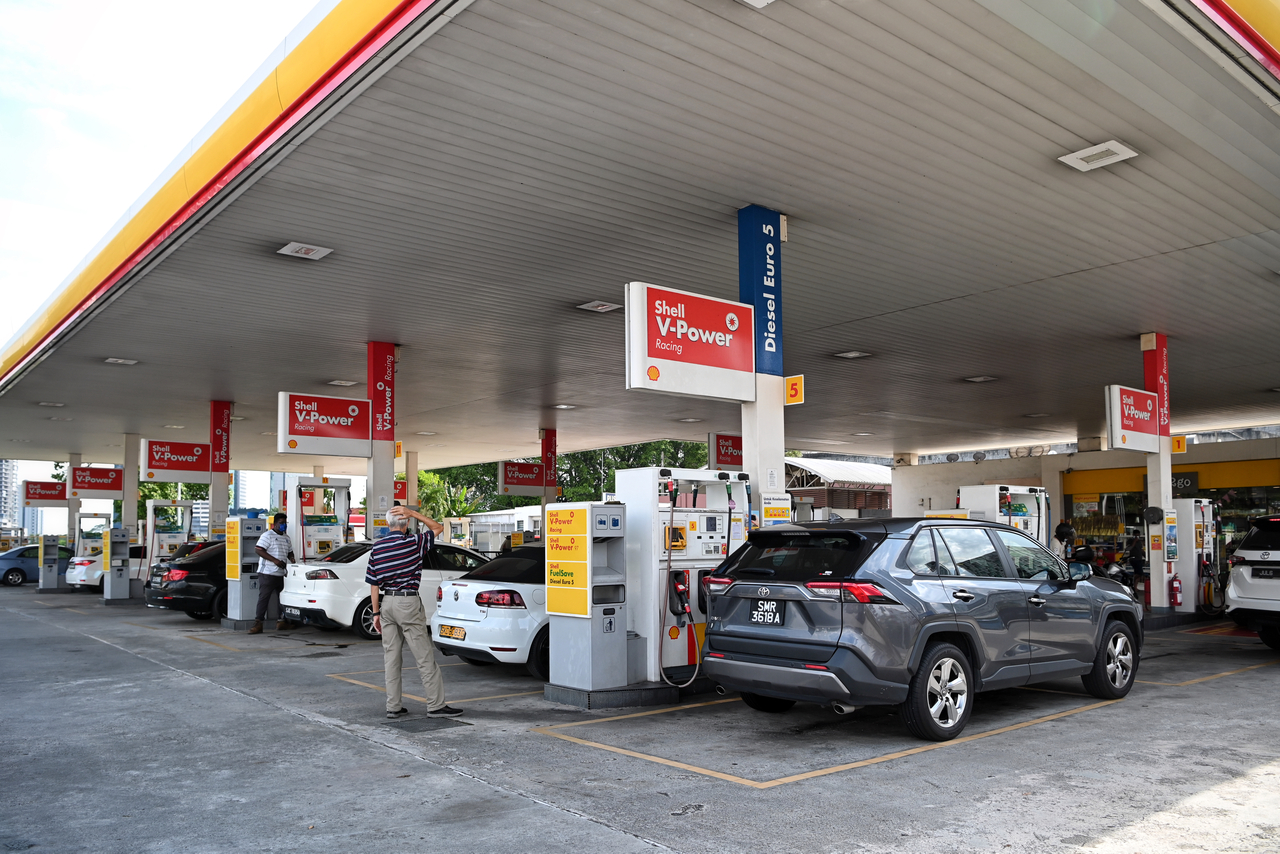Petrol prices may remain high on shortage of refining capacity, says Shell chief
Sign up now: Get ST's newsletters delivered to your inbox

Lower refining capacity means refiners cannot meet demand for fuels such as petrol and diesel even if crude oil supply improves, said Mr Ben van Beurden.
ST PHOTO: KUA CHEE SIONG
Follow topic:
SINGAPORE - Petrol prices may remain elevated not just because crude oil prices are high, but also because the world is running short of refining capacity, said Shell's global chief executive on Wednesday (June 29).
Addressing a press conference in Singapore, Mr Ben van Beurden said lower refining capacity means refiners cannot meet demand for fuels such as petrol and diesel even if crude oil supply improves.
He said there are several reasons why refining capacity has declined over the past few years.
"First of all, companies like us have started to shut down refineries, partly to convert them into biofuel facilities," he said.
He gave the example of Shell's refining complex at Singapore's Pulau Bukom, where the company has cut refining capacity to lower its carbon footprint and produce cleaner fuels.
Mr van Beurden said Shell globally cut four million tonnes of carbon emission last year, of which 580,000 tonnes came from Bukom.
Adding to the transport fuel shortage is China's decision, probably for domestic reasons, not to export refined fuels, he said. Meanwhile, sanctions on Russia due its conflict with Ukraine have also resulted in lost refining capacity and fuel supply.
"All of this means that the global refining system is running flat out, and there is not much you can do about it," he noted.
Mr van Beurden said liquefied natural gas (LNG), the main fuel used for power generation in Singapore, will also remain expensive as supplies from elsewhere are unlikely to completely replace Russian gas piped to Europe.
He said buyers are turning to the spot market, where only one-third of global LNG cargoes are traded.
"So I think yes, if you are a spot buyer, you will feel the pain of other spot buyers trying to outbid you. That's just the market reality of the day," he added.
He said the crude oil market will also remain volatile for quite a while as under-investment in exploration and production has left very little spare capacity, which refers to the volume of production that can be achieved within 30 days and sustained for at least 90 days.
The war in Ukraine and sanctions against Russia have also added a lot of uncertainty about supplies.
"I do believe we are going to be facing quite a bit of uncertainty in markets for some time to come," he said.
Mr van Beurden said that despite some headwinds, including Covid-19 lockdowns in China and talk of a recession in the United States, demand for fuels is still on the rise.
"How long it will last is also very hard to predict.
"It very much will depend also on how long the Ukraine war lasts, and how long it will take for new capacity to come on stream.
"But perhaps also will there be a recession... and these are all factors that are very hard to predict and therefore, I would like to stay away from that," he said.

